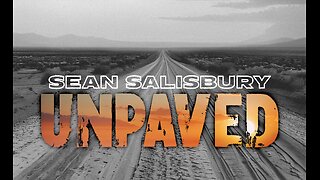Premium Only Content

Why Would a Good God Allow Evil? | The Most Haunting Question in Theology
#ProblemOfEvil #GodAndSuffering #TheologyExplained #FaithAndDoubt #FreeWillDebate #ChristianPhilosophy #WhyEvilExists #DeepQuestions #SpiritualWrestling #GodAndMorality`
The question of why an all-powerful, perfectly good God would permit evil has puzzled thinkers for millennia. At its core lies a trilemma: if God is omnipotent, He could stop evil; if He is wholly good, He would want to stop evil; yet evil persists. This apparent contradiction—often called the problem of evil—drives theologians to ask not whether God exists, but how He can allow suffering and cruelty to unfold under His sovereign gaze.
One of the most enduring explanations is the free-will defense. By granting humans genuine choice, God makes love authentic—robots don’t fall in love, only beings with freedom do. Free will inevitably opens the door to moral evil, because autonomous agents can choose selfishness over virtue. As Saint Augustine and later Alvin Plantinga emphasize, a world in which creatures can reject God is morally superior to one in which they’re preprogrammed to obey.
Building on free will, the privation theory reframes evil not as a created substance but as an absence of good. Augustine and Aquinas argued that evil lacks independent being—it’s a deprivation or distortion of the good God intended. Like darkness to light, evil exists only where goodness is turned away or neglected, not as a force coequal with God. This helps reconcile how a perfectly good Creator could permit things that aren’t “real” in themselves but are gaps in His creation’s intended perfection.
Beyond moral culpability, natural suffering—earthquakes, diseases, floods—calls for a different angle. John Hick’s “vale of soul-making” suggests that natural evils offer a crucible for character: empathy, courage, and perseverance emerge only in the face of hardship. Without storms and trials, virtue would be untested and hollow. In this view, the world’s rough edges serve a higher pedagogical purpose, preparing souls for eventual restoration and communion with God.
Finally, Christians point to redemption as God’s victorious answer to evil. Biblical narratives like Joseph’s betrayal turned to blessings reveal a pattern: what evil intends for harm, God repurposes for good. New Testament writers echo this, assuring believers that suffering—though painful—yields perseverance, character, and hope of a renewed creation. Thus, God “enables” evil only temporarily, weaving every sorrow into a greater tapestry of redemption and ultimate triumph over all that marred His original design.
-
 1:51:23
1:51:23
The Quartering
4 hours agoTrump Snub Backfires, Matt Walsh Sounds The Alarm, Candace Owens Theory On Charlie Kirk
88.5K36 -
 LIVE
LIVE
Owen Shroyer
56 minutes agoOwen Report - 10-10-2025 - Qatari Airbase In America Angers Israeli Lobby
1,050 watching -
 1:14:53
1:14:53
DeVory Darkins
4 hours ago $13.04 earnedDemocrat Candidate leaves crowd DUMBFOUNDED as Trump scores MAJOR VICTORY
58.3K20 -
 1:12:16
1:12:16
Sean Unpaved
4 hours agoTNF Shocker: Giants Stomp Eagles, Cubs Claw a Game 5, Weekend NFL/CFB Best Bets!
20.7K6 -
 1:25:05
1:25:05
HotZone
9 hours ago $1.86 earned5 Signs Terrorists are Plotting a Massive US Strike
11.7K9 -
 1:05:42
1:05:42
Dear America
4 hours agoShould Christians Celebrate Halloween?
22K13 -
 2:03:24
2:03:24
The Culture War with Tim Pool
5 hours agoAntifa Is A Terror Organization, Crackdown Coming As Leftists Defend Violence | The Culture War
166K163 -
 28:39
28:39
Afshin Rattansi's Going Underground
5 days agoThe Trump Plan to Save US Economic Hegemony You Haven’t Heard Of (Jim Rickards)
29.6K3 -
 1:47:43
1:47:43
Lara Logan
18 hours agoROSEANNE UNLEASHED: Bolder Than Ever, Plus an Exclusive Peak at Her New Show | Roseanne Barr | Ep 39
29.1K10 -
 1:14:27
1:14:27
Steven Crowder
7 hours agoTrump Gets Screwed out of Nobel Prize - And They're Actually Thrilled About It
249K347